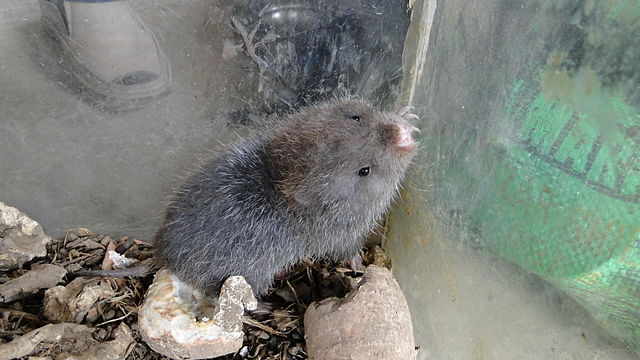Rats Carry Coronavirus Into Markets and Restaurants, New Study Finds

Live animals, particularly bamboo rats, according to nutrition experts and some scientists, have been a great source of protein, specifically in China, for several years now. Still, they are found to be carrying coronavirus.
A new study recently led to additional concerns about wildlife trade and COVID-19. The research found that rats in the supply chain on their way to markets and restaurants of Southeast Asia are carrying coronavirus.
Various strains of the said virus have been discovered in rodents. The particular strain is unlike the virus in COVID-19 that has resulted in this pandemic the whole world is currently experiencing.
However, despite the difference, scientists still warn about transporting large cages of animals because of this particular research.
A joint study by researchers from the United States and Vietnam found that the part of coronavirus's positive cases rose as traders transported the live animals from fields to markets and restaurants.
ALSO READ: Swine Flu Strain with Pandemic Probability Discovered in China
Typical Source of Protein in Asia
Previously conducted research showed that rats are a common source of protein in Asia. These live animals, particularly bamboo rates, according to nutrition experts and some scientists, have been a great source of protein, specifically in China, for several years now.
They are also seen as a substantial source of nutrition. In connection to this, China is known to be breeding millions of this kind of rats for consumption.
Wildlife Conservation Society's Sarah Olson said that while the viruses found in these rats are found to be not dangerous, they offer information on how such viruses can be intensified under these circumstances.
The WCS-led research found that six percent of the rats examined were discovered to have coronaviruses. The numbers increased as the animals were transported through the supply chain.
An increase of 21 percent among the rants which traders handled was recorded. Meanwhile, 32 percent of the said live animals in the markets and 56 percent in eateries were also recorded.
As a result, researchers have believed that these findings are also applicable to other animals, although they are not sure yet.
DON'T MISS THIS: COVID-19+Cancer Combo, Now the Latest Fear
Prohibiting Trade and Consumption of Wildlife
Media reports said Vietnam is considering a prohibition of wildlife trade and consumption. On the other hand, China took out, last week, pangolin parts, from its traditional remedies list, media reports also reported.
Such a move from Vietnam came, following the upgrading of the status of China's forestry authority, of pangolins to first-level protected wild animals, the highest probable status of protection, along with tigers and pandas.
According to Amanda Fine, also from WCS, Wildlife supply chains, as well as the conditions experienced by the animals as they move through the supply chain, seem to augment coronaviruses' predominance considerably.
Recently, China has taken action to lessen wildlife trade and consumption nationwide. As earlier mentioned, such a move is the country's removal of pangolin parts from its traditional medicine categorizations and removal of dogs from its list of livestock.
A lot of scientists today believe that the spread of the virus from COVID-19, or coronavirus, began at an exotic animal market in Wuhan, China.
In a report, scientists were urged to look at coronaviruses due to the SARS epidemic and the commonness of the viruses in bats, as well as other wildlife.
Most of them cause minor to totally no illness in human beings, although SARS had already shown dangerous they could be.
IN CASE YOU MISSED THIS: Is There a Link Between Your Blood Type and COVID-19? Here's What the Experts Say
© MD News Daily.
